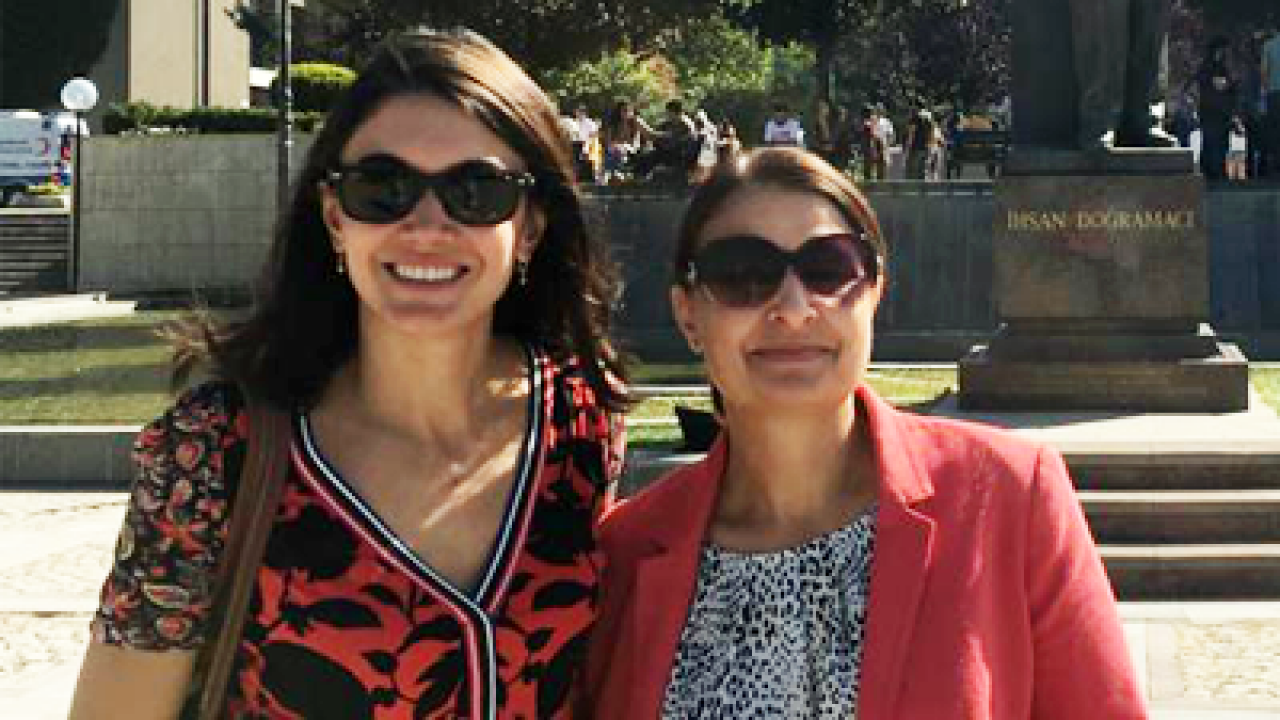October 06, 2020
On the border of the Syrian refugee crisis: What 37 hours of interviews taught us about NGO advocacy

By Daniela Dimitrova, Iowa State University and Emel Ozdora Aksak, Bilkent University
Our research examined how non-profit organizations operate working with refugees in two different cultural contexts — Turkey and Bulgaria. By focusing on Turkey, which has the largest Syrian refugee population in the world, and Bulgaria, an EU border nation with a minimal number of migrants, the research findings help us better understand the ways in which the different geopolitical and economic environment affect the non-profit sector and the functioning of civil society.
We interviewed civil society representatives in Bulgaria and Turkey to develop a deeper understanding of the opinions, feelings and attitudes. We wanted to listen to their personal experiences about the civil society organizations working with refugees and migrants in detail since their explanations could lead to gathering of different experiences.
When we teach research methods and get to the qualitative section of the class, the interview method comes at the top of the list. Among the many concepts we cover when it comes to in-depth interviews are saturation point which is a point when everyone you talk to seems to be repeating the same thing, and the emergence of overarching themes, where you get a few "Eureka!" moments that help answer your research questions. Both appear totally abstract to most of the students, and sometimes faculty too.
But getting involved in an actual interview project changes that “abstractness” into reality. That happened to us just after we completed our 12th interview in Turkey, when we both agreed we were getting to saturation point quickly.
By the 39th interview — 2,240 minutes of interviewing to be more precise — saturation point was clearly reached. This intensive interview experience showed us that being patient and willing to listen to people tell their stories and talk about their experiences is very important and one needs to be ready to do that. Most of the interviews were conducted in English, however when the interviewees wanted to speak in their native languages (Turkish or Bulgarian), the Turkish or Bulgarian researcher in the team were able to do the translation and ensure that no meaning was lost in the process. This is very important and made us realize that every research team needs a native to be more effective and culturally sensitive.
CSO Similarities
The Civil Society Organization (CSO) representatives we talked to in Turkey and Bulgaria shared many similar traits. Except for the larger International or Intergovernmental organizations, they had some staffing and budget challenges and had to constantly seek out new grants and funding opportunities to function.
They were constantly trying to identify new needs and aid areas to ease the challenges faced by refugees. In addition, the constant battle for ensuring sustainability of funding has forced them to often compete for resources, and also human capital. All this challenging work is further complemented with personal stigmatization, where CSO staff have to fight stigmatization not only from outsiders but often times stemming within their own families though questions such as, “so when are you sending these people back?”
Different Approaches to Communication and Advocacy
One of the major differences for refugee communication and advocacy was related to context: While Bulgaria is a Christian country whose European culture is different than those of predominantly Muslim Syrian refugees, Turkey is a neighboring country with the same Islamic values, similar family structures and a relatively more familiar language.
While Bulgaria is mostly seen by refugees as a transition country which they might use to travel legally or illegally to other European countries like Germany and Sweden, Turkey is mostly a destination country where some refugees have been staying for over 9 years. This creates a challenge for CSOs in Bulgaria because just as they focus on a Syrian refugee to provide them with a support system and some social aid, they might never hear from that person again. This often results in a frustration for the CSO professionals.
On the other hand, one of the major challenges for CSOs in Turkey is balancing government relations and ensuring support and permits to help these disadvantaged populations. The often-fluttering government stance on the Syrian refugee issue has created a shifting ground for smaller national and regional NGOs and forced them to shift their rhetoric and activities accordingly.
Another related challenge for Turkish CSOs has been the stigmatization against Syrian populations in Turkey. Legally they cannot be officially called “refugees”, they cannot apply for asylum in Turkey – only using Turkey as a transition country while their asylum application to Western countries are being evaluated, they were considered to be protected under “temporary protection status” and thus could not apply for citizenship for themselves of their Turkey-born children, and were often faced with negative media representations.
This project was funded by a Page/Johnson Legacy Scholar grant and was part of the Page Center's 2019 call for research proposals on advocacy. For information, please email Daniela Dimitrova at danielad@iastate.edu or Emel Ozdora Aksak at emel.ozdora@bilkent.edu.tr.
